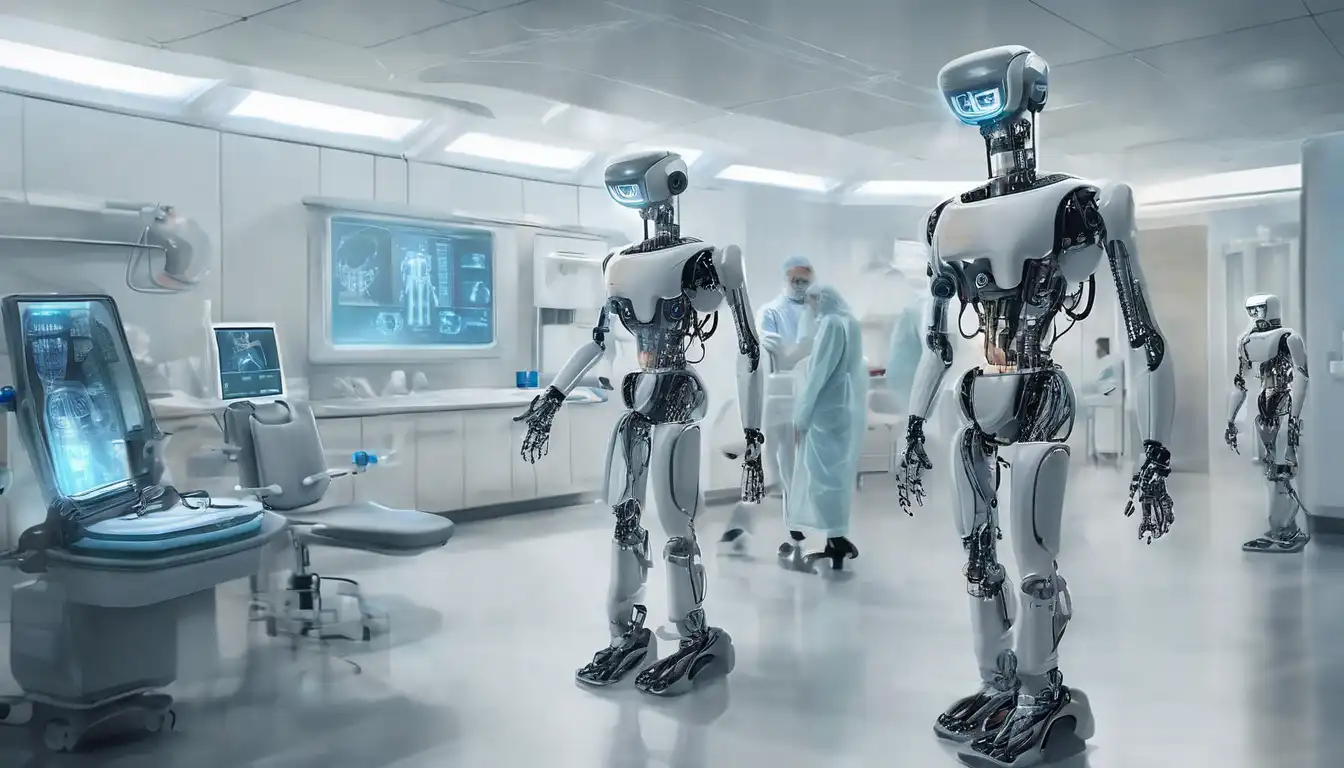The Next Era of Robotics in Healthcare
The integration of robotics into healthcare is transforming patient care, surgical procedures, and rehabilitation processes. This technological revolution is not just about automation; it's about enhancing precision, efficiency, and outcomes in medical treatments. As we look towards the future, the potential for robotics in healthcare seems boundless, promising to redefine the standards of care and operational efficiency in medical facilities worldwide.
Transforming Surgical Procedures
Robotic surgery has become a cornerstone of modern medical practices, offering unparalleled precision and control. Systems like the Da Vinci Surgical System allow surgeons to perform complex procedures with minimal invasiveness, reducing recovery times and improving patient outcomes. The future promises even more advanced systems, capable of performing surgeries with minimal human intervention, thanks to advancements in artificial intelligence and machine learning.
Enhancing Patient Rehabilitation
Robotics is also making significant strides in patient rehabilitation. Exoskeletons and robotic limbs are providing new hope for individuals with mobility impairments, enabling them to regain independence. These technologies are not only improving the quality of life for patients but are also reducing the physical strain on healthcare professionals during rehabilitation sessions.
Automating Routine Tasks
Beyond direct patient care, robotics is automating routine tasks in healthcare settings. From dispensing medication to sterilizing equipment, robots are increasing operational efficiency, allowing healthcare professionals to focus more on patient care. This automation is crucial in addressing the growing demand for healthcare services and the shortage of skilled professionals in the industry.
The Role of AI in Robotics
Artificial intelligence is the driving force behind the next generation of healthcare robotics. AI enables robots to learn from vast amounts of medical data, improving their decision-making capabilities over time. This synergy between AI and robotics is paving the way for personalized medicine, where treatments and care plans are tailored to the individual needs of each patient.
Challenges and Ethical Considerations
Despite the promising advancements, the integration of robotics in healthcare is not without challenges. Ethical considerations, such as patient privacy and the delegation of life-saving decisions to machines, are at the forefront of discussions. Additionally, the high cost of robotic systems poses a barrier to widespread adoption, particularly in underfunded healthcare systems.
As we navigate these challenges, the future of robotics in healthcare remains bright. With continuous innovation and collaboration between technologists and medical professionals, robotics will undoubtedly play a pivotal role in shaping the future of healthcare. The journey towards fully integrated robotic healthcare systems is complex, but the potential benefits for patient care and medical efficiency are immense.
